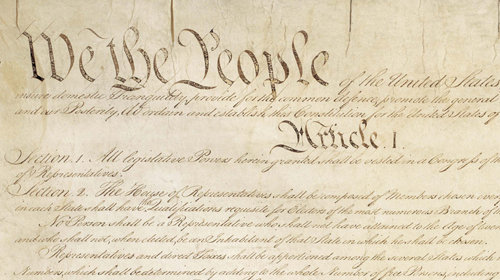The Biggest Threat to Free Speech and Intellectual Property That You’ve Never Heard Of


As we have seen in the failed attempts of SOPA/PIPA, and the floundering Anti-Counterfeiting Trade Agreement, intellectual property (“IP”) laws are often poorly constructed, hastily proposed and ultimately both ineffective and potentially abusive.
Now, the latest threat to free speech in guise of IP reform is a multilateral trade agreement currently being negotiated (in secret) by the (“USTR”). That agreement—the , or “TPP”—would reportedly include dramatic changes to intellectual property laws, changes that could potentially permit the patenting of plants, animals, and medical procedures.
And, while some of the proposed changes run contrary to enacted federal law, the USTR is not only pushing for TPP, it is doing its best to avoid congressional oversight. For instance, they recently rebuffed a request from the staff director on the Senate Finance Committee's international trade subcommittee to review documents pertaining to the negotiations. :
[M]y office is responsible for conducting oversight over the USTR and trade negotiations. To do that, I asked that my staff obtain the proper security credentials to view the information that USTR keeps confidential and secret. This is material that fully describes what the USTR is seeking in the TPP talks on behalf of the American people and on behalf of Congress. More than two months after receiving the proper security credentials, my staff is still barred from viewing the details of the proposals that USTR is advancing.
USTR later gave in a bit and allowed the Senator himself to view the documents but still refused the staffer’s access.
Prominent senators aren’t the only ones being kept in the dark. Consumer and advocacy groups are also totally shut out of the negotiations, while certain interested corporations have a preferred seat at the table. As Senator Wyden further explained:
The majority of Congress is being kept in the dark as to the substance of the TPP negotiations, while representatives of U.S. corporations – like Halliburton, Chevron, PHRMA, Comcast, and the Motion Picture Association of America – are being consulted and made privy to details of the agreement.
Aside from the cloak and dagger nature of the negotiations, some of the most troubling aspects of the TPP are significant expansions of patent protections. While we tend to hear a lot about how IP regulations will affect online content, leaked versions of TPP would require the signatory countries to permit the patenting of plants and animals as well as diagnostic, therapeutic and surgical methods of treatment of humans or animals—all without explicit limits on enforcement. Current U.S. law forbids the enforcement of surgical patents against medical practitioners for good reason. We do not want doctors wondering if they’ll be risking a patent infringement suit every time they want to try a new surgical technique.
While the ACLU believes that the First Amendment can be served by effective IP protections that provide artists, writers, scientists and other innovators and creators with the incentive to innovate and create, any IP enforcement regime must be crafted carefully and after full public deliberation. Expect to hear much more about TPP in the coming days. We’ll be digging into the leaked draft, and will continue to raise concerns with the USTR and Congress about both the secrecy of the negotiations and the substantive problems in the agreement. The patent laws must yield to the First Amendment, and it seems likely that the opposite has been true in the USTR’s efforts on TPP.
Learn more about intellectual property: Sign up for breaking news alerts, , and .


